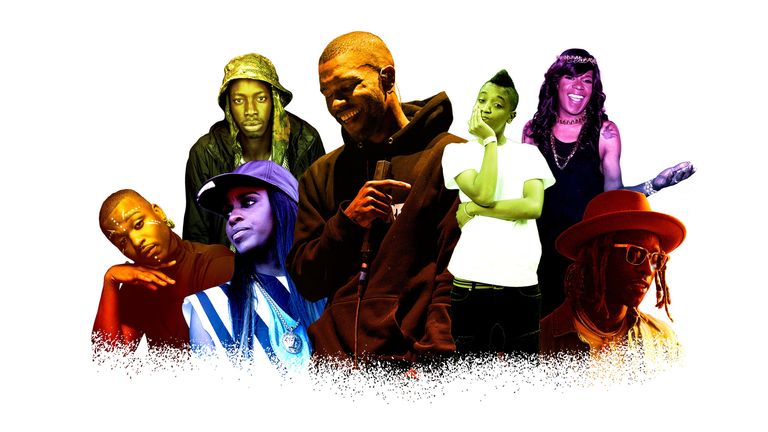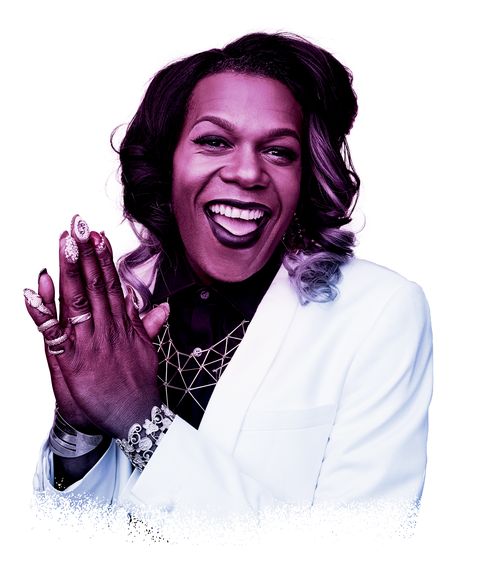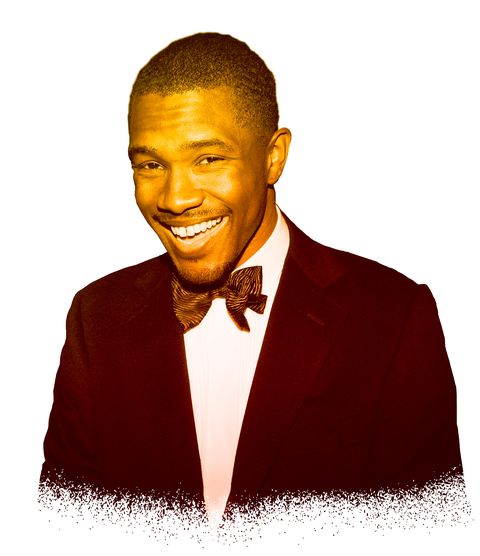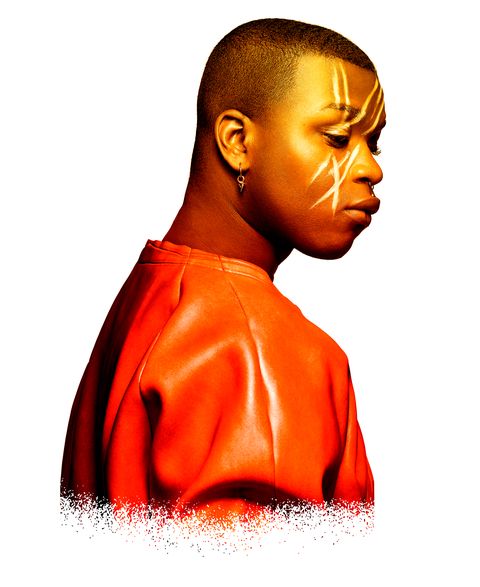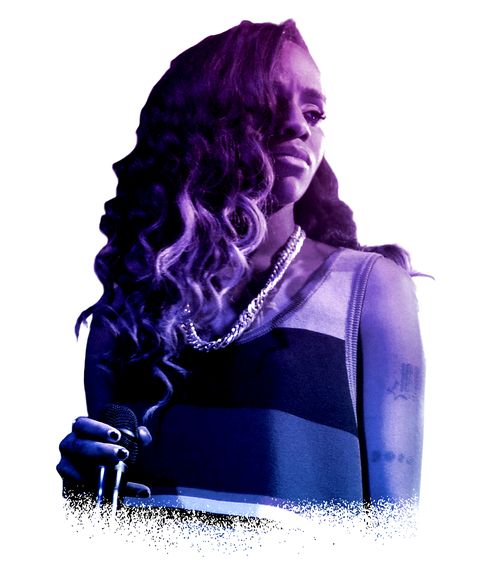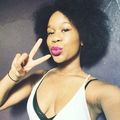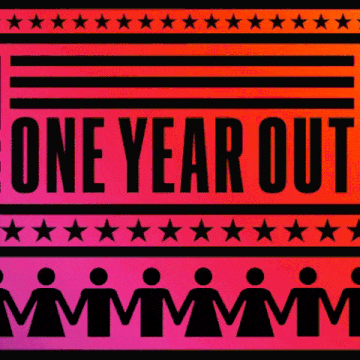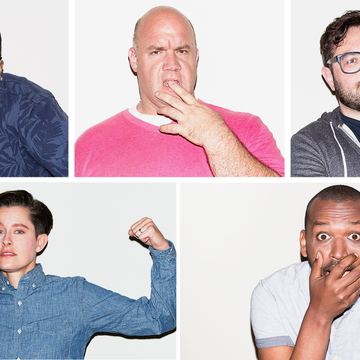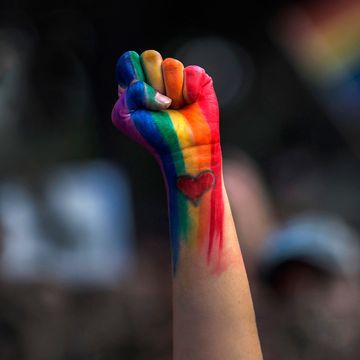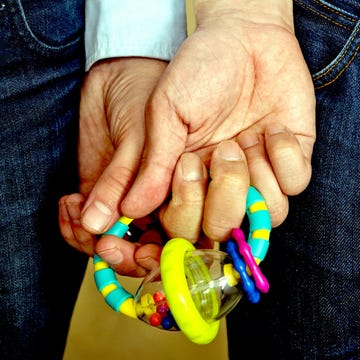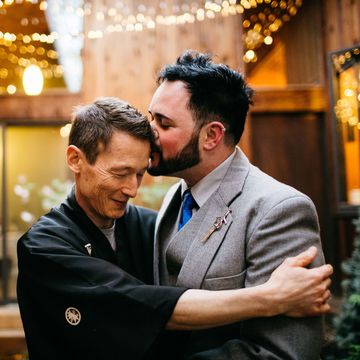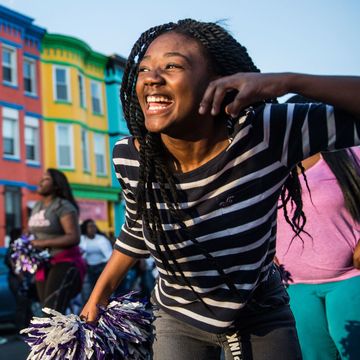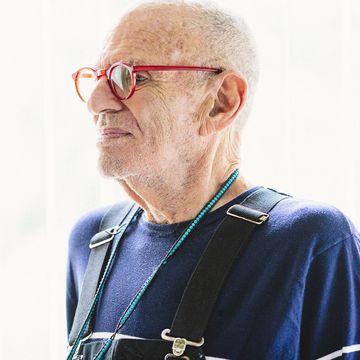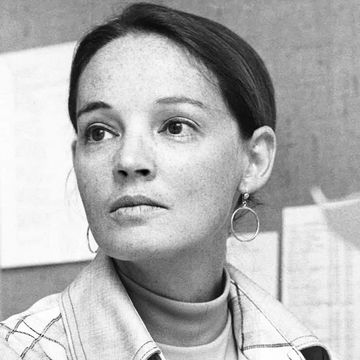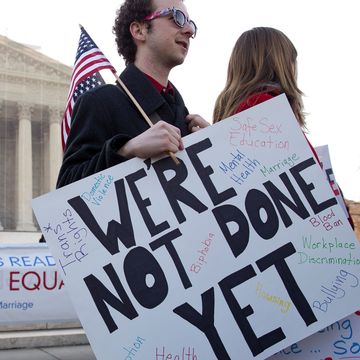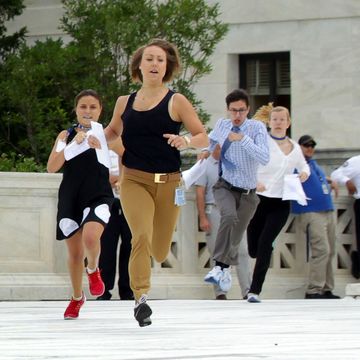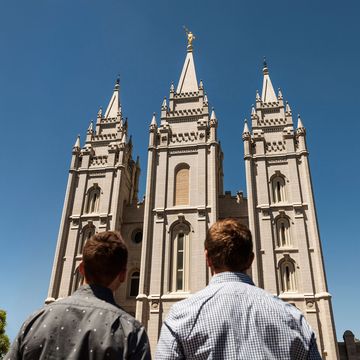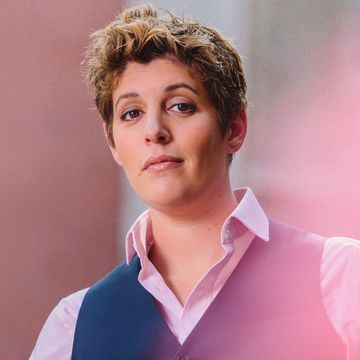In the video for "Formation," the lead single from this year's Lemonade, Beyoncé enlists the vocal ad libs of a New Orleans-based bounce musician named Big Freedia. "I came to slay, bitch!" she shouts, and you believe her.
Freedia would make any list of the Bayou's most influential contemporary musicians. But she also holds the distinction of being an LGBT artist who's managed to climb to the apex of popular music—the "Formation" video has been viewed nearly forty-seven million times on YouTube alone—if only to spout some sassy one-liners. In so doing, she (though identifying as a male, Freedia prefers the feminine pronoun) joins a small but growing group that includes Frank Ocean, Azealia Banks, and Le1f.
For years, hip-hop was viewed as the least LGBT-friendly music genre. (The label was undeserved—all forms of mainstream music, from pop to rock to country especially, tend to support a culture of safety and sameness that results in artistic stagnation. If anything, the airwaves have become more, not less homogeneous.) Hip-hop artists haven't done themselves any favors—most infamously Eminem, who used "faggot" like a tic. Whereas other artists seasoned their lyrics with casual homophobia, Eminem made it his main course. On "Criminal," a track from 2000's The Marshall Mathers LP, he raps, "My words are like a dagger with a jagged edge/That'll stab you in the head, whether you're a fag or lez/Or the homosex, hermaph or a trans-a-vest/Pants or dress—hate fags? The answer's yes." The rapper dismissed accusations of bigotry, arguing that such words were common in his community. He even performed with Elton John at the Grammys, but the gesture rang hollow.
In the last five years, however, a burgeoning yet disconnected community of LGBT hip-hop artists has bubbled up from the fringes. Most do not receive Top 40 radio play, but they are planting their roots in once-barren soil. Freedia describes the progress as "ten steps forward, three steps back." Musicians like Angel Haze, Syd tha Kyd, and Cakes Da Killa now appear regularly on the summer-festival circuit, land interviews in fashion and art publications, and are slowly chipping away at the glass ceiling that holds them down.
The LGBT hip-hop-adjacent artist who's caused the biggest crack is Frank Ocean. (He's really more R&B than anything, but he came up through the Los Angeles-based Odd Future crew, whose own Tyler, the Creator has spouted his fair share of homophobic slurs.) Upon the release of Channel Orange, his 2012 debut album, Ocean penned an open letter addressing his sexuality. He wrote about falling in love with another man at the age of nineteen and described it as his first true love. "I don't know what happens now, and that's alrite," Ocean wrote. "I don't have any secrets I need kept anymore." Ocean received an outpouring of support from artists in the mainstream, including hip-hop's power couple. "Be fearless. Be honest. Be generous. Be brave. Be poetic. Be open. Be free. Be yourself. Be in love. Be happy. Be inspiration," Beyoncé wrote on an image posted to her site. On his own Life + Times site, Jay Z—despite having used homophobic slurs in his music before—published a response in support of Ocean from writer dream hampton. Ocean went on to win a Grammy for Best Urban Contemporary Album—the first openly gay artist to win in that category—and the album has sold more than half a million copies.
On June 21, shortly after the Pulse shooting in Orlando, Ocean—who stays out of the spotlight most of the time—published a powerful response on Tumblr: "Many hate us and wish we didn't exist. Many are annoyed by our wanting to be married like everyone else or use the correct restroom like everyone else. So we say pride and we express love for who and what we are. Because who else will in earnest?"
While more and more openly gay hip-hop artists are unabashedly proud of their sexual identity, many resist letting it define their careers. Big Freedia notes how an LGBT label can pigeonhole an artist: "We were called 'sissy rappers' in New Orleans, but I like to say we are rappers, period." Rashard Bradshaw, who performs as Cakes Da Killa, agrees: "I would just like to be considered a good writer and rapper," Bradshaw says. "I try to stay as true to myself as I can and not try to go to the tide." But, like any truth-telling musician, his identity informs his lyrics. Bradshaw rose to popularity through the strength of his critically acclaimed second mixtape, The Eulogy. His beat-driven rap is explicit, raunchy, and unabashedly gay. On "Hot Fuck No Love," he raps, "Hundred years into makin' nice/How we ain't gon' lick that ass?/Oh shit, he is/Take that finger out and drop it to the damn floor/Damn, oh damage to the dental dam/Dentyne fine/He like a lot of bite when he grind."
To be clear, grouping these artists together solely on the basis of their sexuality is reductive at best and fetishizing at worst; these musicians are more than just LGBT. On his 2015 debut album, Riot Boi, Le1f was far more concerned with the ongoing water crisis and racial injustice than with gay rights. And his music—full of abrasive, thick synths—is considerably different from, say, Frank Ocean's R&B or Angel Haze's more straightforward rap.
Haze stands alone in the hip-hop community. The Detroit-raised, New York-based twenty-three--year-old rapper identifies as agender and prefers the pronouns they andthem. During an interview with Buzzfeed, Haze told its styling team, "To be honest with you, I'm not really a girl. I don't feel comfortable in these clothes. If anything, I feel more on the guy end of the spectrum." Months later, when the reporters followed up with Haze about the comment, they recognized the moment as a personal awakening. Haze told the reporter, "I've just been sitting here accepting it, you know? What have I been doing all these years?" Haze also identifies as pansexual, an identity that does not fit cleanly into the straightforward LGBT spectrum. In an interview with Fusion TV, they expanded on their sexuality. "I think that labels aren't for me," Haze told the interviewer. "It's not for a person. It's to make other people comfortable." Haze later clarified, saying, "To kind of identify as pansexual, to me, means to just want love. To have a connection with anyone you can find it with."
It is not the responsibility of LGBT musicians to make their art more palatable for the mainstream. Rather, nonmarginalized communities must actively work to dismantle the assumptions and prejudices that have kept marginalized artists on the fringe. We've seen a bit of that, intentionally or not, with twenty-three-year-old Atlanta native Young Thug. Thug represents a new guard that is more open, communicative, and unafraid of the music industry's latent homophobia. He has simultaneously courted and largely ignored controversy surrounding his sexuality. He uses terminology like "hubbie" and "babe" to describe his friend Rich Homie Quan. He has worn sheer tops, leopard-print dresses, women's jeans, and even a tutu. "I like everything that people say," he toldThe Guardian. "No matter what they say. 'You gay, you a punk. You got a nice girlfriend, you're ugly, you can't rap, you're the hardest.'"
Whether or not other mainstream artists emulate Beyoncé's level of inclusion remains to be seen. Her gesture, seemingly small but profound in the way in which it reaches millions of listeners, helps dismantle boundaries between artists and communities, one song at a time. And she needs these progressive artists as much as they need her. As Freedia says, "I think people were ready for someone like me."

